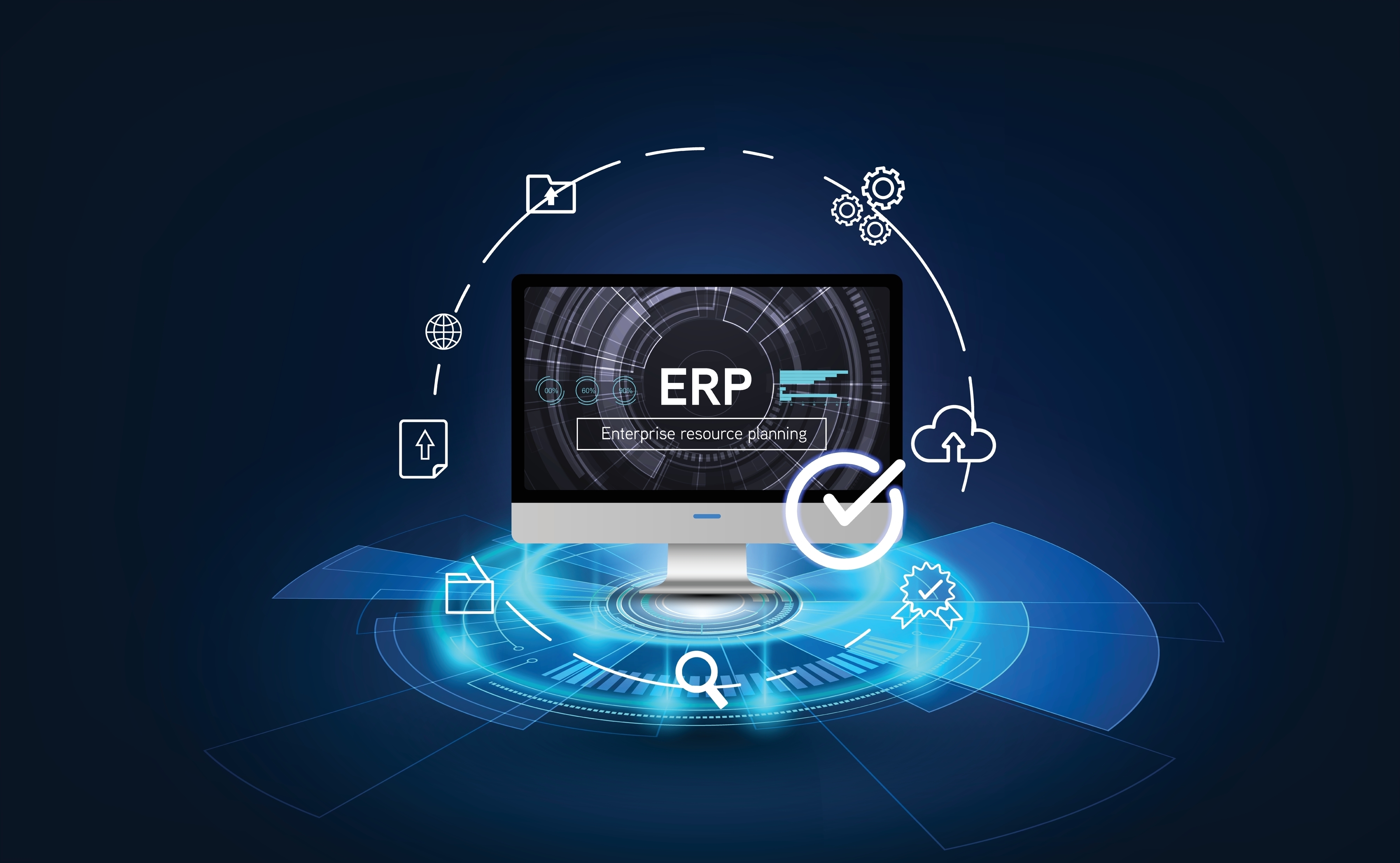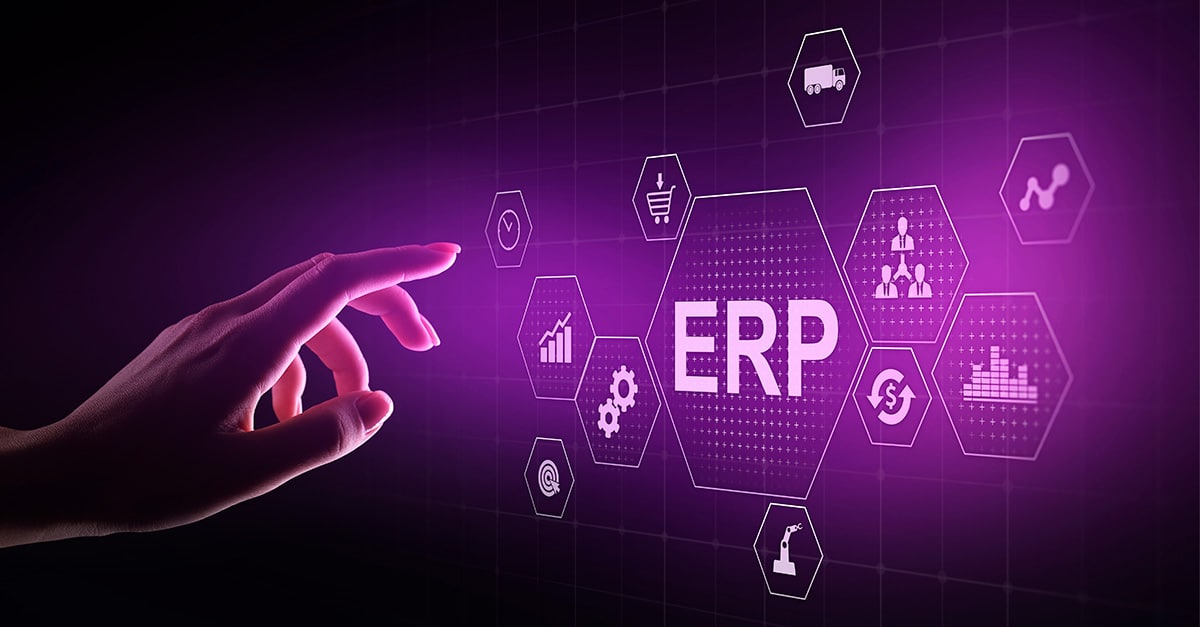ERP is an essential component of any company's or organization's strategy to achieve success and increase productivity What happens in a large organization requires some heavy systems and operations, Here comes the role of the ERP system, which is the central hub of companies, It is the critical link that provides integration, automation and business intelligence necessary to manage inclusive business processes effectively and efficiently and to highlight what ERP is, its concept and features, read on.

What is ERP?
ERP is a software solution that integrates and manages many core business processes within the organization ERP is a business management platform that links finance, reporting, inventory, customer management and workforce, All in one place, ERP enables companies to streamline processes, improve efficiency and enhance interdepartmental collaboration, By automating and integrating these critical processes, for medium and large companies, ERP reengineers processes to enhance productivity and growth.
ERP software can be customized to meet different industry needs, ERP modules can collect data to provide users with real-time industry insights to identify efficiency opportunities, reduce cost and improve processes, and as a central tool of the business information system, ERP provides dashboards that facilitate the planning and distribution of internally available resources.
How does ERP work?
ERP software comes in the form of a platform that integrates many applications or modules that can be customized according to your activity. To accomplish the task its platform should be a multifunctional enterprise resource planning (ERP) tool, and more specifically, it should allow the ability to take over the following:
- Procurement management
- Sales & Commercial Management
- Accounting management - customer accounting, supplier accounting, fixed assets, analytics, etc.
- Administrative oversight (budgets)
- Inventory management (logistics, transportation, etc.);
- Production Management (Planning)
- Personnel and Salary Management (HRM).
ERP also includes advanced business intelligence and reporting functions, allowing you to enter all data related to your activity into the cloud: orders, sales, production, management control, etc.
Advantages of ERP Enterprise & Corporate Management Program
ERP has many comprehensive benefits that most organizations can expect to see when implementing this solution, including:
1. Reduce errors
One of the most significant benefits of ERP is the ability to use templates for the core project management processes of professional service agencies such as creating project overviews or creating reports, this reduces errors and improves efficiency by providing a uniform set of procedures offered by ERP across multiple projects By implementing a set of best practices, institutions can address work in silos and greater operational coherence and improved compliance with industry standards.
2. Improved productivity
Perhaps one of the most prominent factors to consider within your production facility during operation productivity, it is important to identify methods that save you time and increase productivity levels And here comes the role of ERP during a redundant process that is automated, Individuals will have more time to work on other projects and tasks And the work will become much simpler because the solution is designed for ease of use.
3. Competitive advantage and scalability
Using ERP puts you ahead of manufacturing facilities that don't use it the latter, which may still prefer to adhere to the methods of the past, while other companies will seek technological solutions For its part, scalability refers to ERP's ability to adapt and grow according to changing business needs, Increasing user requirements, expanding operations, and as business grows, ERP systems can expand, Absorbing additional users, processes and locations, this ensures that the ERP corporate management software remains relevant and effective in the long term.
4. Access to data
ERP software in its category provides its users with the ability to fully supervise all company operations and provides easy access to the company's direct data enterprise resource planning system ", when leveraging the functions of the leading ERP system, Users across the company can access the data they need in real time and see how it relates to other areas of the company, from inventory levels to global supply chains.
5. Unified Commercial Process
Companies must consolidate their business operations and link them to ERP, allowing automation and efficiency throughout the company, and perhaps the best way to leverage the power of ERP accounting processes automation, is the automation of monotonous daily tasks that doesn't actually add any great value across the wider business, this will save your team time for more work "Value added" while eliminating unnecessary human error as indicated in the first benefit, moreover, automation exists 24 hours a day, seven days a week, which can greatly enhance production and customer satisfaction.
6. Cost savings
Using ERP software can save costs in multiple ways By improving processes and reducing manual intervention, enterprises can reduce operating costs In addition, better inventory management and procurement practices can reduce transportation costs and avoid unnecessary expenditures And one of the most important benefits of using ERP software is that it helps you reduce operating costs because it coordinates with different departments in the organization, It thus consolidates various business processes that create control over inventory cost, marketing cost, production cost, etc.
Conclusion:
ERP software is essential for manufacturing companies, providing real-time tracking of production, inventory and supply chain management processes, It also improves operational efficiency by automating key functions such as order processing, production scheduling and quality control and ensure the ERP system by integrating sections such as procurement, production and finance, Simplify communications and reduce bottlenecks, this helps companies improve resource allocation, track raw materials and promote compliance with industry standards.
other topics:
reference:
1. <<5 Essential Benefits of Choosing an Efficient ERP System>>, readwrite
2. <<Reasons to Use ERP Systems in Businesses>>, enterprisetalk

Add New Comment